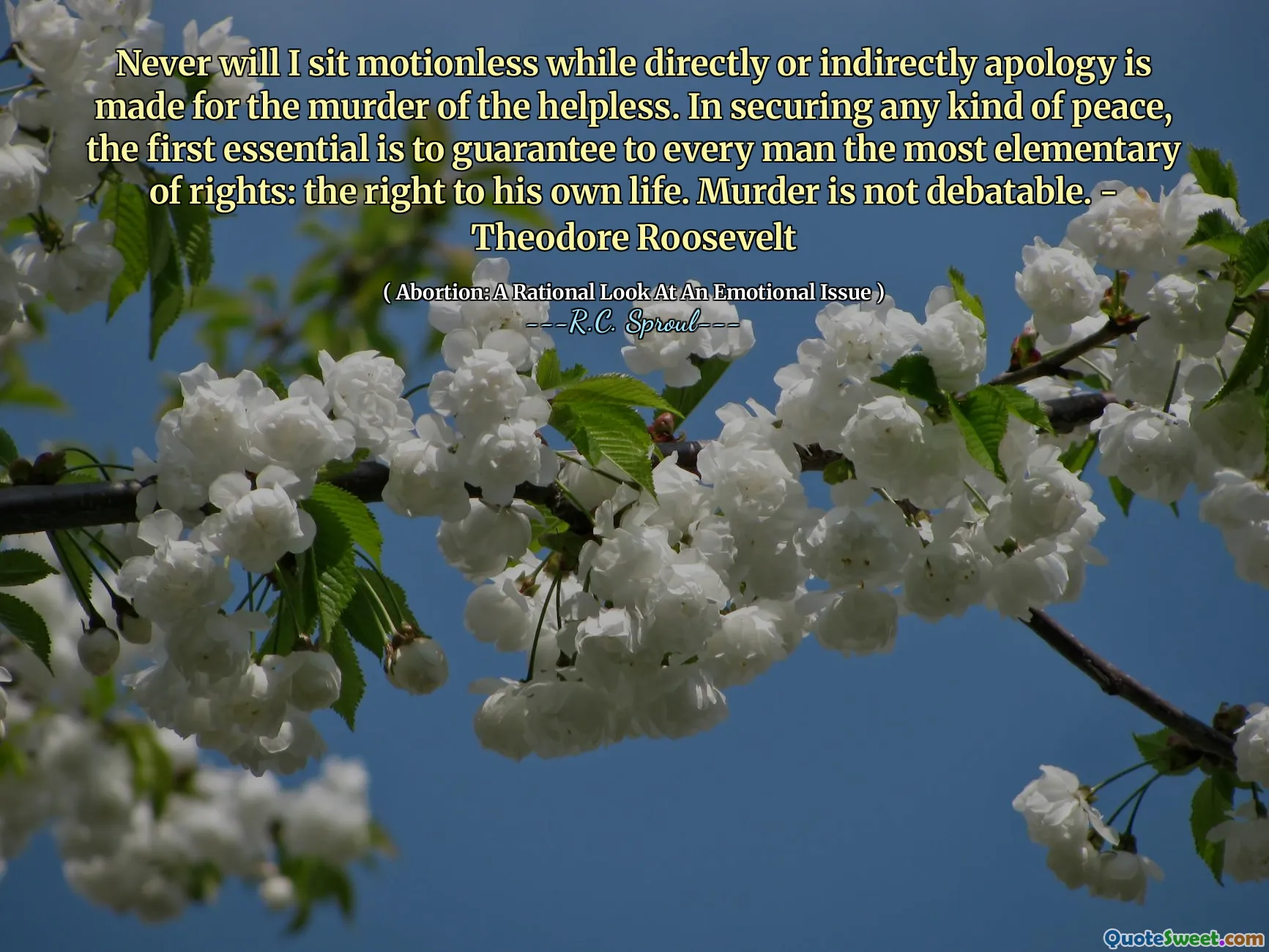
Never will I sit motionless while directly or indirectly apology is made for the murder of the helpless. In securing any kind of peace, the first essential is to guarantee to every man the most elementary of rights: the right to his own life. Murder is not debatable. - Theodore Roosevelt
This quote by Theodore Roosevelt, presented within the context of R.C. Sproul's book Abortion: A Rational Look At An Emotional Issue, firmly asserts the inviolability of human life as the cornerstone of peace and justice. Roosevelt’s emphatic refusal to remain passive in the face of wrongdoing reflects a timeless moral stance: the protection of the helpless and the acknowledgment of every individual's fundamental rights must be non-negotiable. In particular, his assertion that "murder is not debatable" underscores a principle that life itself is a fundamental right rather than an outcome contingent on debate or subjective judgment.
Roosevelt's position, articulated in a period marked by various violent injustices, resonates deeply with contemporary discussions surrounding the moral and ethical considerations of practices like abortion. When Sproul revisits this quote, he highlights an essential foundation — that peace and justice begin by honoring and protecting the most fundamental right: the right to life. This argument invites serious reflection on how societies value human life, especially when the vulnerable or defenseless are involved.
This stance pushes the reader to consider the complexity of protecting life in a world rife with ethical dilemmas, urging a shift from relativistic evaluations toward a principled respect for life. It challenges us not to remain silent or inactive but to confront and oppose any cultural or societal norms that aim to diminish the sanctity of life. Ultimately, Roosevelt’s powerful words remind us that peace built on the erosion of fundamental rights is inherently unstable; true peace requires justice rooted in the protection of life itself.






